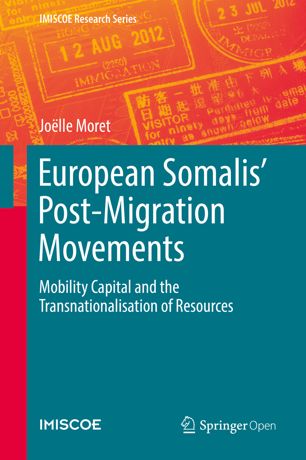

Most ebook files are in PDF format, so you can easily read them using various software such as Foxit Reader or directly on the Google Chrome browser.
Some ebook files are released by publishers in other formats such as .awz, .mobi, .epub, .fb2, etc. You may need to install specific software to read these formats on mobile/PC, such as Calibre.
Please read the tutorial at this link: https://ebookbell.com/faq
We offer FREE conversion to the popular formats you request; however, this may take some time. Therefore, right after payment, please email us, and we will try to provide the service as quickly as possible.
For some exceptional file formats or broken links (if any), please refrain from opening any disputes. Instead, email us first, and we will try to assist within a maximum of 6 hours.
EbookBell Team

0.0
0 reviewsBased on a qualitative study on migrants of Somali origin who have settled in Europe for at least a decade, this open access book offers a ground-breaking exploration of the idea of mobility, both empirically and theoretically. It draws a comprehensive typology of the varied “post-migration mobility practices” developed by these migrants from their country of residence after having settled there. It argues that cross-border mobility may, under certain conditions, become a form of capital that can be employed to pursue advantages in transnational social fields. Anchored in rich empirical data, the book constitutes an innovative and successful attempt at theoretically linking the emerging field of “mobilities studies” with studies of migration, transnationalism and integration. It emphasises how the ability to be mobile may become a significant marker of social differentiation, alongside other social hierarchies. The “mobility capital” accumulated by some migrants is the cornerstone of strategies intended to negotiate inconsistent social positions in transnational social fields, challenging sedentarist and state-centred visions of social inequality. The migrants in the study are able to diversify the geographic and social fields in which they accumulate and circulate resources, and to benefit from this circulation by reinvesting them where they can best be valorised.The study sheds a different light on migrants who are often considered passive or problematic migrants/refugees in Europe, and demonstrates that mobility capital is not the prerogative of highly qualified elites: less privileged migrants also circulate in a globalised world, benefiting from being embedded in transnational social fields and from mobility practices over which they have gained some control.